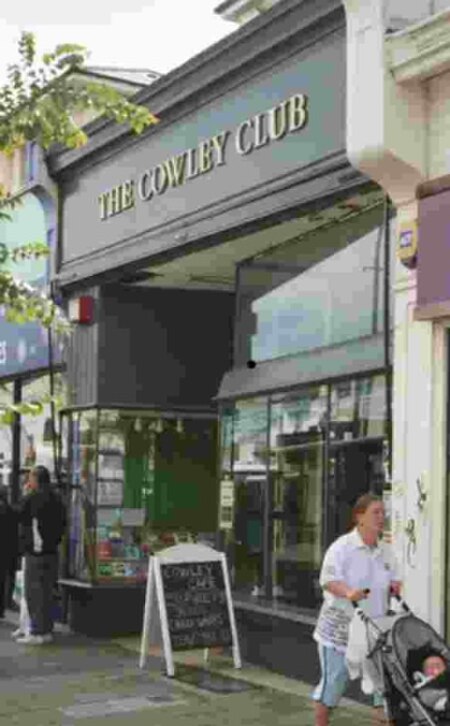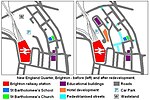Cowley Club

The Cowley Club is a libertarian self-managed social centre in Brighton, England. It opened in 2003, providing resources and meeting spaces for groups and individuals active in areas such as workplace and unemployed struggles, international solidarity, animal liberation, ecological defence, feminist and queer activism and opposing the arms trade. Its political identity is close to anarchism or libertarian socialism. It also houses a vegan community café, a bookshop, and free English lessons for migrants. The Cowley Club is named after local activist Harry Cowley and is part of the UK Social Centre Network. In their study of the radical social centre movement in the United Kingdom, academics Stuart Hodkinson and Paul Chatterton characterise the Cowley Club as a similar type of collective-ownership initiative to the London Action Resource Centre (LARC), "with the added dimension of a housing cooperative". Chatterton depicts the club as one of a number of resurgent social centres in the 2000s.
Excerpt from the Wikipedia article Cowley Club (License: CC BY-SA 3.0, Authors, Images).Cowley Club
London Road, Brighton Round Hill
Geographical coordinates (GPS) Address Nearby Places Show on map
Geographical coordinates (GPS)
| Latitude | Longitude |
|---|---|
| N 50.830347222222 ° | E -0.13599166666667 ° |
Address
London Road Shops
London Road
BN1 4JH Brighton, Round Hill
England, United Kingdom
Open on Google Maps











